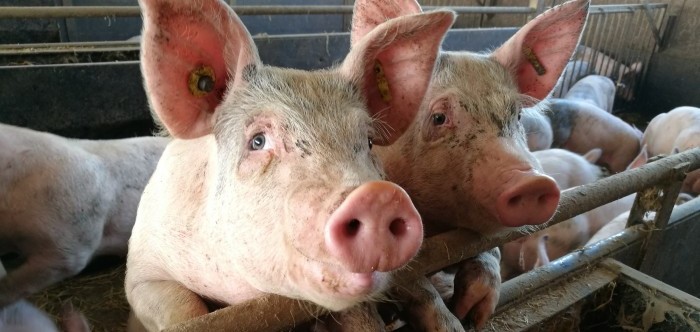In the April issue of Pig World, editor Alistair Driver, praises the response of the industry to the coronavirus crisis and expresses that it might bring about a long-term change in attitude
It has not been lost on the UK farming industry that just a few weeks ago, a Treasury official was suggesting the food sector was ‘not critically important’ to the country’s economy. Agriculture and fisheries ‘certainly isn’t’, Dr Tim Leunig suggested.
Fast forward a few weeks to pictures of empty supermarket shelves and viral media posts of frontline NHS staff in tears after being unable to find any fresh food at the end of a shift coping with coronavirus casualties – and that argument has well and truly ended. The Government gave food industry workers ‘critical’ status because they are exactly that.
Of course, the number one task for now is coping with the immediate threat of a virus that does not discriminate between borders, or between royals and Prime Ministers and the rest of us.
The food industry has a massive role to play in this in ensuring food gets to the people stuck at home and, of course, to these who need it most in the medical profession.
The response from all parts of the chain has been fantastic, a point made by Defra Secretary George Eustice, who in a letter to the industry, praised the ‘hidden heroes working hard to feed the nation’.
The industry has had to adapt to the biggest change in consumption patterns for more than 80 years – and it happened with very little warning. The relatively minimal disruption so far is testament to the efforts of all those involved, including Government, which (despite some of the advice it receives) appears to fully understand the importance of the industry and, importantly, all of its constituent parts.
More importantly, the industry has been preparing for what will surely be tougher days ahead, putting in place measures to hopefully keep supplies flowing if and when staff absences become more commonplace.
Some of these are large scale measures, such as a major processor recruitment campaign and lobbying policymakers over issues like EU Green Lanes to ease the passage of key goods over EU borders.
But, ultimately, it might be the ‘small’ things that make all the difference to people’s health and wellbeing and the industry’s ability to function – like instilling strict hand-washing and general hygiene in the workplace and taking all steps possible to adhere to the 2-metre guidance and generally minimise contact between staff. Another message coming through loud and clear to all producers is: please don’t stockpile.
The endgame isn’t clear. Nobody has yet explained, in the absence of a vaccine and national testing, how we come out of restrictions safely when the virus is still circulating.
But when, eventually, this does, if there is one positive to come out of all this, it is that the fundamental importance of farmers to the nation’s health, wellbeing – and prosperity – should never be under-estimated again.
Perhaps, we might even see that reflected in future policy? Things are unlikely to be the same again.




